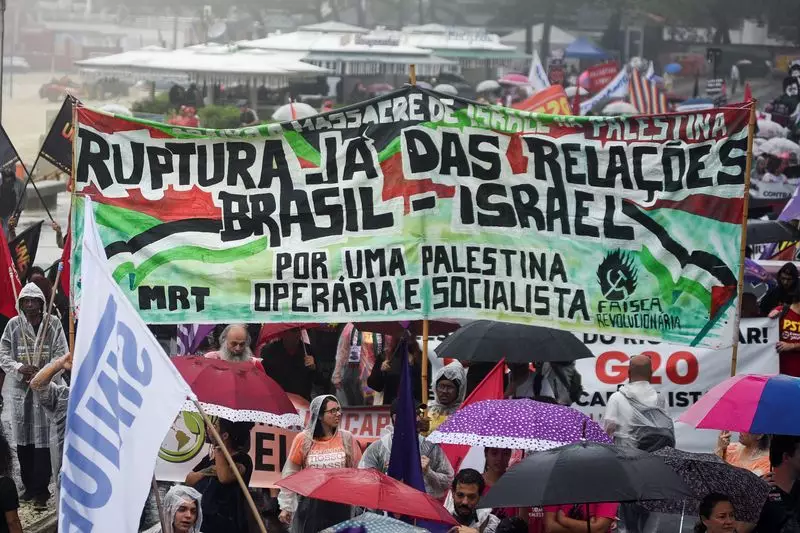In the lead-up to the G20 summit in Rio de Janeiro, diplomats from the world’s foremost economies are wrestling with significant policy disputes. Their efforts to craft a joint statement highlight the ongoing challenges countries face regarding climate change funding, wealth taxation, and the geopolitical ramifications of the Ukraine war. As representatives from member nations convene, their dialogues are increasingly complicated by divergent national interests and pressing global crises.
With the United Nations COP29 climate talks unfolding simultaneously, there is a palpable urgency for the G20 to project unity and decisive action. The focus is primarily on how wealthier nations can effectively contribute to global efforts in combating climate change. Notably, many developing countries are staunch in their position that it is the responsibility of richer nations to shoulder the financial burdens associated with climate initiatives. This controversy underscores a broader contention within the group: the expectation of financial support and accountability from both developed and developing nations continues to impede progress.
The political climate surrounding the G20 summit has been further complicated by the return of former President Donald Trump to a significant political role. His anticipated return raises concerns about the U.S.’s commitment to international agreements, particularly regarding climate accords like the Paris Agreement. This newfound political landscape introduces a precarious element to negotiations, threatening to reverse any strides made in climate policy and cooperation.
Simultaneously, the ongoing war in Ukraine has presented a persistent challenge for the G20. Since 2022, discussions on this topic have revealed stark divisions among member nations, complicating the prospects for a cohesive diplomatic strategy. The recent conflict in Gaza has only amplified these tensions, compelling G20 sherpas to cautiously navigate discussions about military conflicts, often opting to limit their joint statements to broad principles and general calls for peace.
On the economic front, the G20 summit hosts an equally divisive issue: wealth taxation. President Luiz Inacio Lula da Silva’s proposal to impose taxes on the super-rich has encountered fierce opposition, particularly from Argentina. The country’s new right-leaning leadership, under President Javier Milei, has publicly disavowed the concept after engaging with Trump, showcasing a withdrawal from previously progressive fiscal stances.
The last-minute decision by Argentina to reject the inclusion of wealth taxation in the summit’s final communiqué serves as a stark reminder of how political alliances can shift rapidly, influencing international dialogues. As negotiators grapple with these issues, it’s evident that consensus is becoming increasingly elusive, complicating efforts to craft meaningful policies that address both climate change and economic inequality.
As the nations of the G20 prepare to assemble in Rio, the need for collaboration and compromise has never been greater. Acknowledging the complexity of these issues will be crucial in forging a united front. Without clear, actionable commitments from member nations, the likelihood of achieving substantial outcomes — especially in tackling global crises like climate change and economic disparity — remains bleak. The coming days will be pivotal, as leaders must navigate this intricate web of interests, ultimately determining the collective path forward.


Leave a Reply